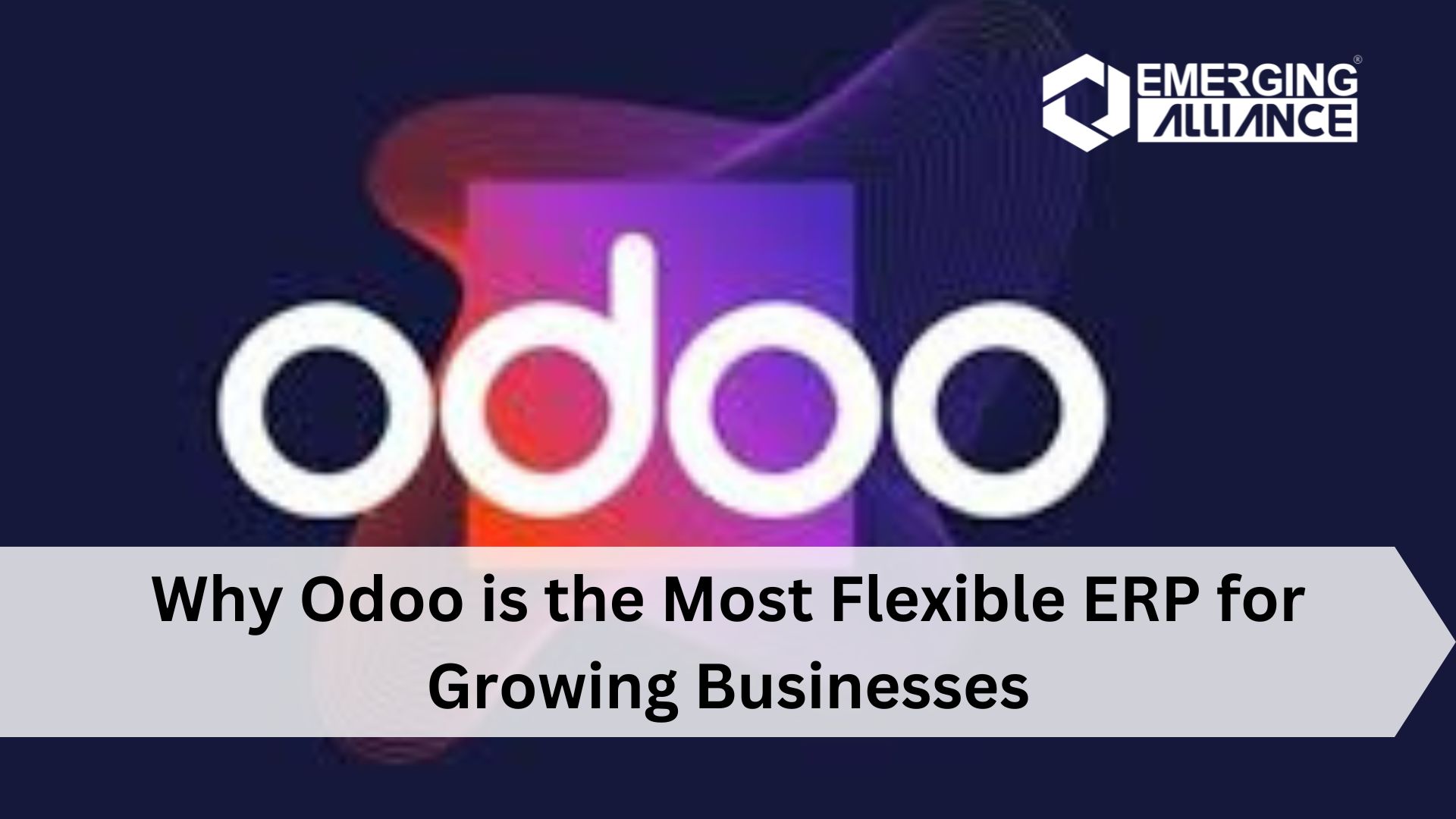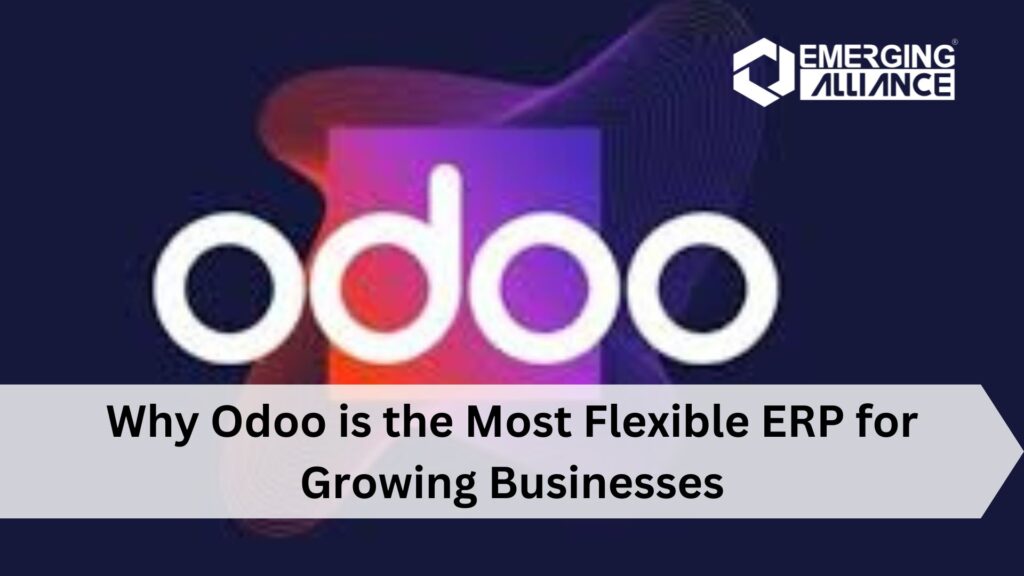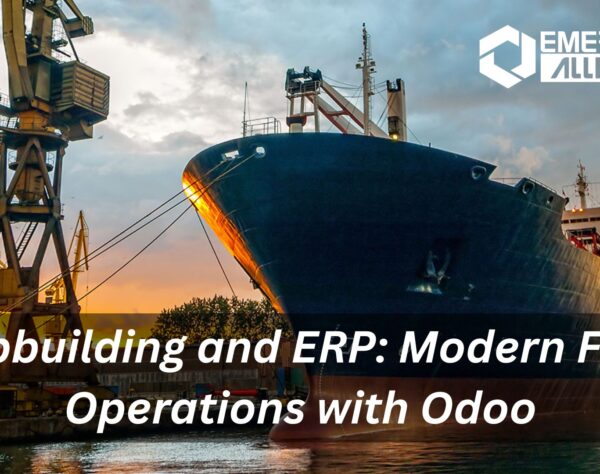
Why Odoo is the Most Flexible ERP for Growing Businesses

Maximize Business Efficiency with Odoo ERP Flexibility
In today’s competitive business landscape, companies need an agile and scalable ERP solution to manage operations efficiently. Odoo ERP has emerged as a game-changer, offering flexibility, affordability, and an extensive suite of applications that cater to businesses of all sizes. Whether you are a startup, SME, or an established enterprise, Odoo provides tailored solutions to streamline workflows and improve efficiency. Let’s explore why Odoo is the most flexible ERP for growing businesses.
1. Modular Architecture for Scalability
One of the key advantages of Odoo ERP is its modular architecture. Unlike rigid ERP systems, Odoo allows businesses to choose and integrate only the modules they need, such as:
- Accounting
- Inventory Management
- CRM (Customer Relationship Management)
- Sales & Marketing
- Human Resources (HR)
As a company grows, it can easily add more modules to accommodate expanding business needs without overhauling the entire system.
2. Open-Source Customization
Odoo’s open-source nature makes it one of the most customizable ERP solutions available. Businesses can modify and tailor functionalities to match their unique requirements. Developers can integrate third-party apps, create custom workflows, and enhance reporting features to ensure seamless business operations. This flexibility makes Odoo a cost-effective ERP compared to proprietary solutions.
3. Seamless Integration with Third-Party Apps
Unlike many ERP systems that require complex integrations, Odoo seamlessly connects with popular third-party applications such as:
- E-commerce platforms like Shopify and WooCommerce
- Payment gateways like PayPal and Stripe
- Marketing tools like Mailchimp and Google Analytics
This allows businesses to automate processes and improve operational efficiency without investing in additional software.
4. Cloud and On-Premise Deployment Options
Every business has different hosting preferences, and Odoo offers both cloud-based and on-premise deployment options.
- Cloud-based Odoo ensures accessibility from anywhere, making it ideal for remote teams.
- On-premise Odoo offers full control over data security and customization, suitable for businesses with strict compliance needs.
This flexibility allows companies to choose an option that best aligns with their IT infrastructure and operational needs.
5. User-Friendly Interface with No Complex Learning Curve
Odoo ERP is known for its intuitive and user-friendly interface. Employees can quickly learn and adapt to the system, reducing training costs and enhancing productivity. Unlike traditional ERP solutions that require months of implementation and training, Odoo enables businesses to go live in weeks.
6. Cost-Effective ERP Solution
For growing businesses, budget constraints are a major concern when adopting an ERP system. Odoo offers affordable pricing plans, including a free community version and cost-effective enterprise editions. Unlike other ERP systems that come with expensive licensing fees, Odoo provides scalable pricing models that help businesses save costs while achieving efficiency.
7. AI-Driven Insights and Automation
Odoo incorporates AI-driven analytics and automation to enhance decision-making and operational efficiency. Features like automated invoicing, predictive analytics, and real-time business insights allow companies to optimize performance and stay ahead of the competition.
Odoo is the most flexible ERP for growing businesses due to its modular structure, cost-effectiveness, seamless integrations, and ease of use. Whether you’re looking for inventory management, CRM, HR, or financial automation, Odoo provides a scalable and efficient solution tailored to your needs.
Got Questions About Odoo ERP? We Have Answers!
1. What makes Odoo ERP different from other ERP solutions?
Odoo ERP stands out due to its modular architecture, open-source flexibility, and cost-effectiveness. Businesses can start with the features they need and scale up as they grow, making it a highly adaptable solution compared to traditional ERP systems.
2. Is Odoo suitable for small and medium-sized businesses (SMBs)?
Yes! Odoo is designed to be affordable and scalable, making it ideal for startups, SMBs, and even large enterprises. The Odoo Community Edition is free, while the Enterprise Edition offers advanced features at a competitive price.
3. Can Odoo integrate with my existing software?
Absolutely! Odoo seamlessly integrates with third-party apps such as Shopify, WooCommerce, PayPal, Stripe, Mailchimp, and more, allowing businesses to automate processes without disrupting their current workflow.
4. Does Odoo offer cloud-based deployment?
Yes, Odoo offers both cloud-based and on-premise deployment options. Cloud hosting ensures accessibility from anywhere, while on-premise deployment gives businesses full control over data security and customization.
5. How easy is it to learn and implement Odoo ERP?
Odoo has a user-friendly interface with minimal learning curves. Unlike other complex ERP systems, businesses can implement and go live in weeks rather than months, making it a hassle-free solution for growing companies.
Are you considering Odoo for your business? Get in touch with an Odoo expert today and take the next step toward digital transformation!







